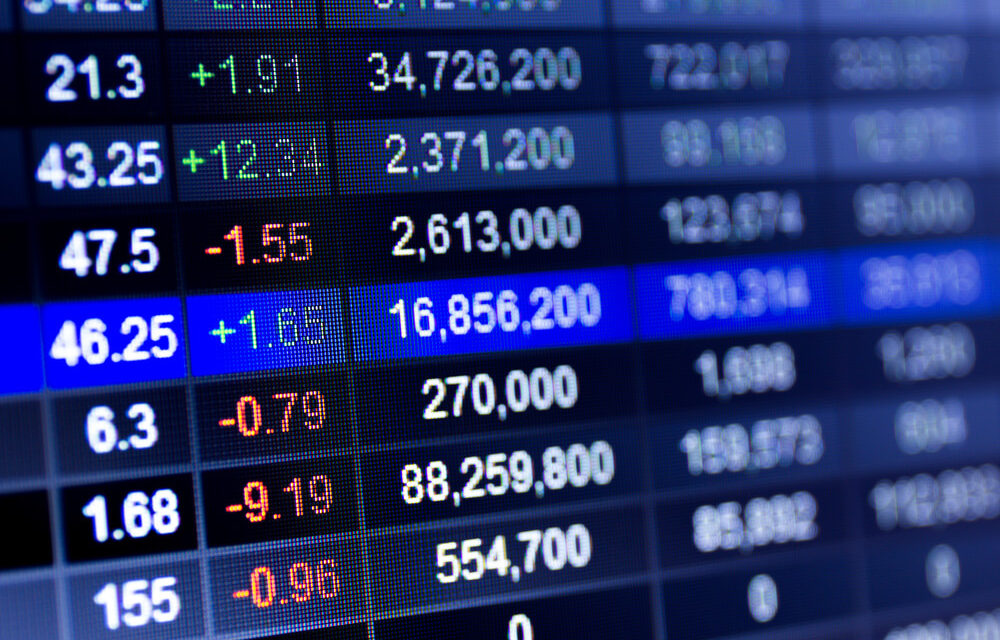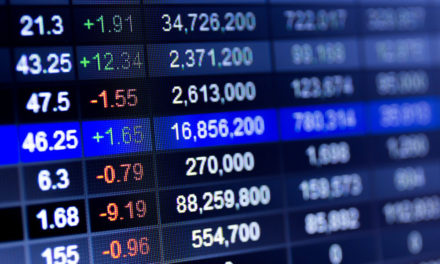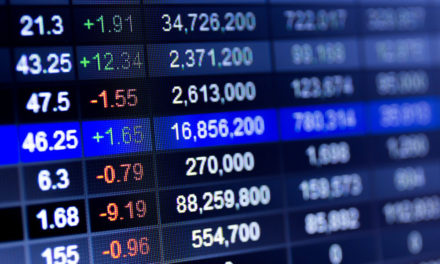Energy companies and oil prices are falling sharply again Friday on reports OPEC countries plan to produce more oil soon. Airlines are climbing as investors anticipate lower fuel costs. Overall, major market indexes are mostly lower. Another decline in bond yields is hurting banks but helping dividend-payers like household goods makers. Gap is plunging after it had a weak first quarter as its namesake brand continued to struggle.
KEEPING SCORE: The S&P 500 index slid 8 points, or 0.3 percent, to 2,718 as of 2:15 p.m. Eastern time. The Dow Jones industrial average fell 79 points, or 0.3 percent, to 24,732. The Nasdaq composite added 8 points, or 0.1 percent, to 7,433 as consumer-focused companies moved higher and technology stocks made small gains. The Russell 2000 index of smaller-company stocks lost 3 points, or 0.2 percent, to 1,625.
ENERGY: Benchmark U.S. crude dropped 4.2 percent to $67.77 a barrel in New York. Brent crude, used to price international oils, fell 3.2 percent to $76.23 a barrel in London. According to multiple reports, Russia and OPEC could start producing more oil soon. The nations agreed to reduce production last year in response to a big buildup in supplies that pushed prices lower, but they could change their policy at a meeting in June. If so, it could reduce profits for energy companies.
Exxon Mobil fell 2 percent to $78.65 and Chevron gave up 3.8 percent to $121.76. The S&P 500 energy index is on track for its worst loss since early February as it’s down 4.8 percent this week.
Airlines rallied. Delta gained 2.8 percent to $55.90 and American rose 3 percent to $44.87. The stocks have skidded over the last few months as the rising price of oil increased their fuel costs and cut into their profits. Delta stock is essentially flat in 2018 and American Airlines has fallen 14 percent.
THE QUOTE: Terry Sandven, chief equity strategist at U.S. Bank Wealth Management, said energy companies and oil prices had made big gains lately and were due to slow down. He said the growing global economy is going to help the industry in the longer term.
“If you look at the sectors that are outperforming, it’s those that tend to be pro-growth,” he said, especially technology and consumer-focused companies. Over the last month that growth, and the strong company profits that come with it, have not translated into gains for stocks. Sandven said that could change when companies start reporting their second-quarter results in July.
BONDS: Bond prices kept rising. The yield on the 10-year Treasury note fell to 2.93 percent form 2.98 percent. Bank stocks fell. KeyCorp lost 1.6 percent to $20.01 and Citigroup fell 1.3 percent to $68.38.
The falling yields helped big dividend payers like household goods makers break out of their recent struggles. Toothpaste maker Colgate-
Palmolive added 1.7 percent to $63.55 and cereal maker Kellogg rose 2 percent to $64.78. The stocks, and others that pay large dividends, have lagged behind the rest of the market as investors found technology firms and consumer-focused companies more attractive thanks to signs of strong growth in the U.S. economy.
RETAIL ROUNDUP: Gap dropped 13.77 percent to $28.43 following a drop in sales for Gap brand stores. Gap has been shifting focus away from the namesake brand because it’s not connecting with shoppers and has struggled to separate itself from rivals. Its Old Navy and Banana Republic brands fared better. Elsewhere, discount retailer Ross Stores gave up 7.1 percent to $77.11 after it gave disappointing forecasts for the current quarter and the full year.
IF THE SHOE FITS: Foot Locker blew past estimates and said sales of premium shoes continue to improve, which has been a major concern for it and other sporting goods companies. The stock jumped 18.1 percent to $54.80. Shoe Carnival leaped 18.7 percent to $31.27 after it beat expectation in the first quarter. It, too, said athletic shoe sales improved.
Sporting goods retailer Hibbett Stores fell 14.9 percent to $24.63 after it said greater sales of clearance items and higher shipping costs hurt its profit. Its sales fell a bit short of analyst projections.
CHRYSLER WOES: Fiat Chrysler fell 2 percent to $21.82 after saying it’s recalling 4.8 million vehicles in the U.S. because in rare circumstances drivers may not be able to turn off the cruise control. The company warned owners not to use cruise control until the cars, SUVs and trucks can be fixed with a software update. Drivers can still stop the cars using the brakes.
METALS: Gold slipped 0.1 percent to $1,303.70 an ounce. Silver lost 0.8 percent to $16.55 an ounce. Copper fell 0.6 percent to $3.08 a pound.
CURRENCIES: The dollar rose to 109.46 yen from 109.28 yen. The euro fell to $1.1656 from $1.1727.
OVERSEAS: Germany’s DAX rose 0.6 percent and France’s CAC 40 fell 0.1 percent. Britain’s FTSE 100 rose 0.2 percent. Japan’s benchmark Nikkei 225 index rose 0.1 percent and South Korea’s Kospi lost 0.2 percent. Hong Kong’s Hang Seng shed 0.6 percent.
© The Associated Press. All rights reserved.




